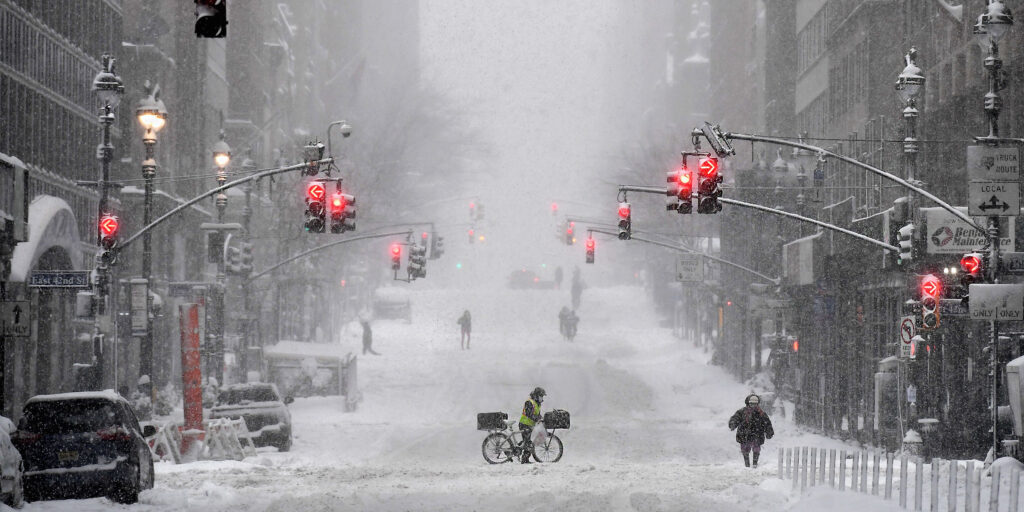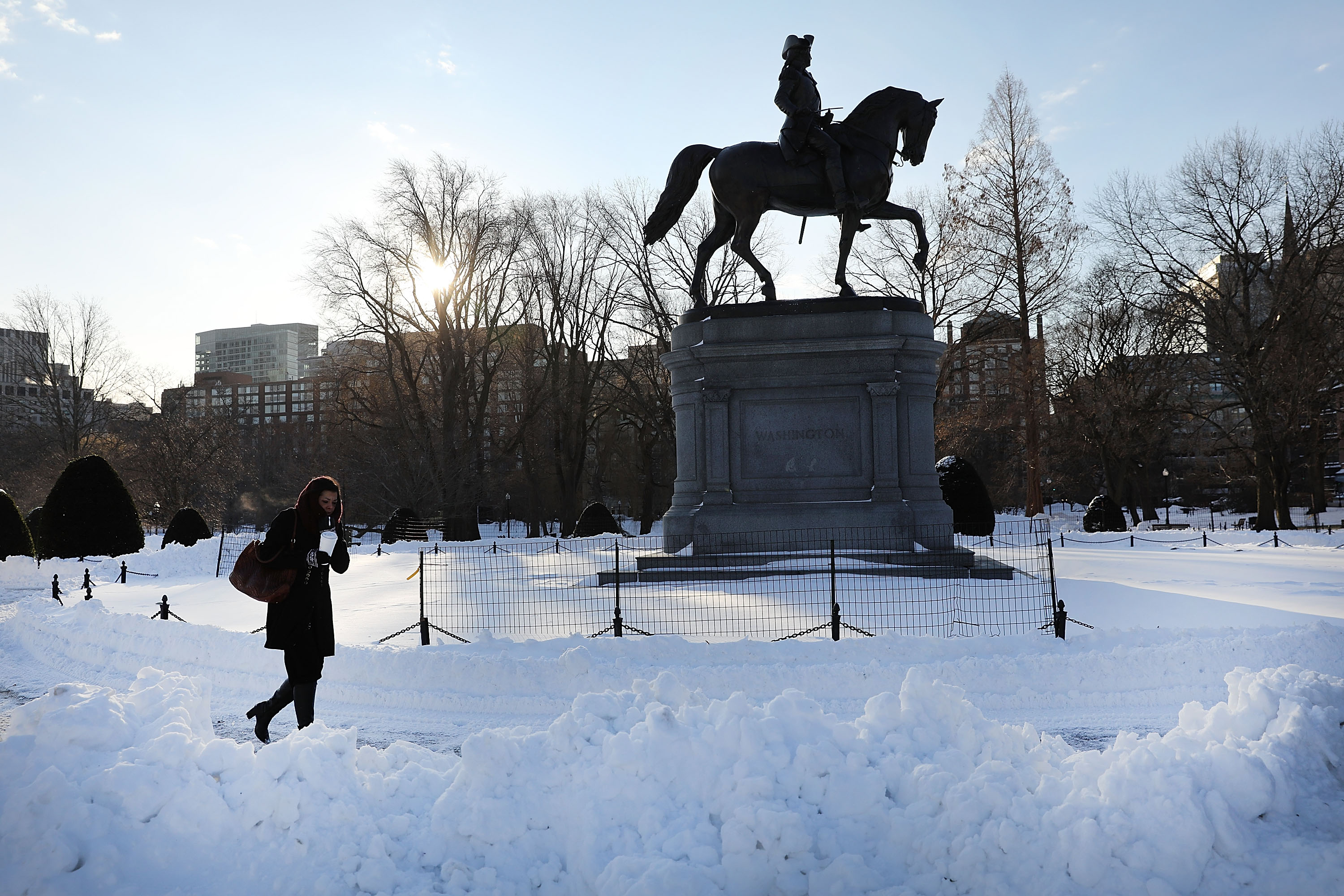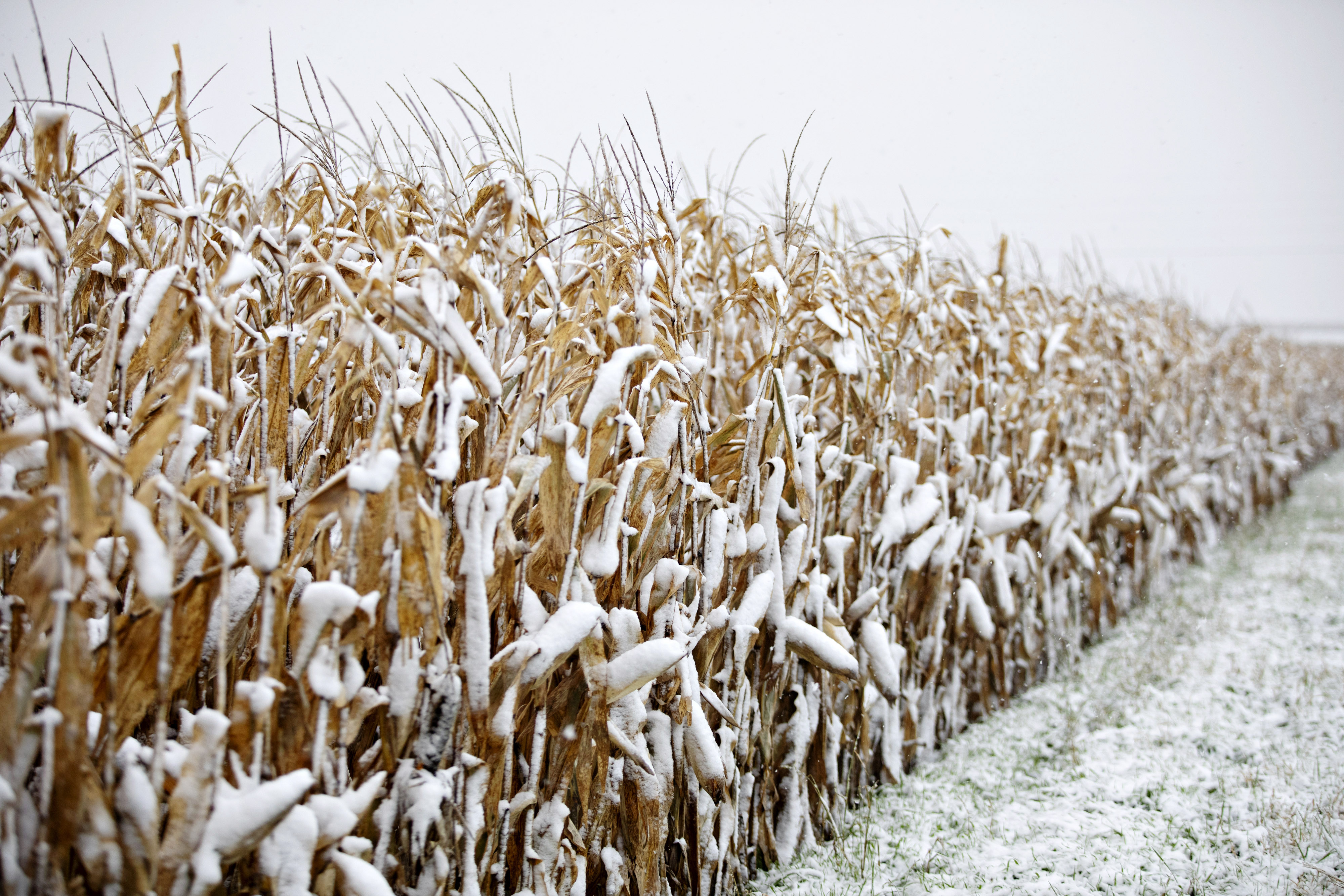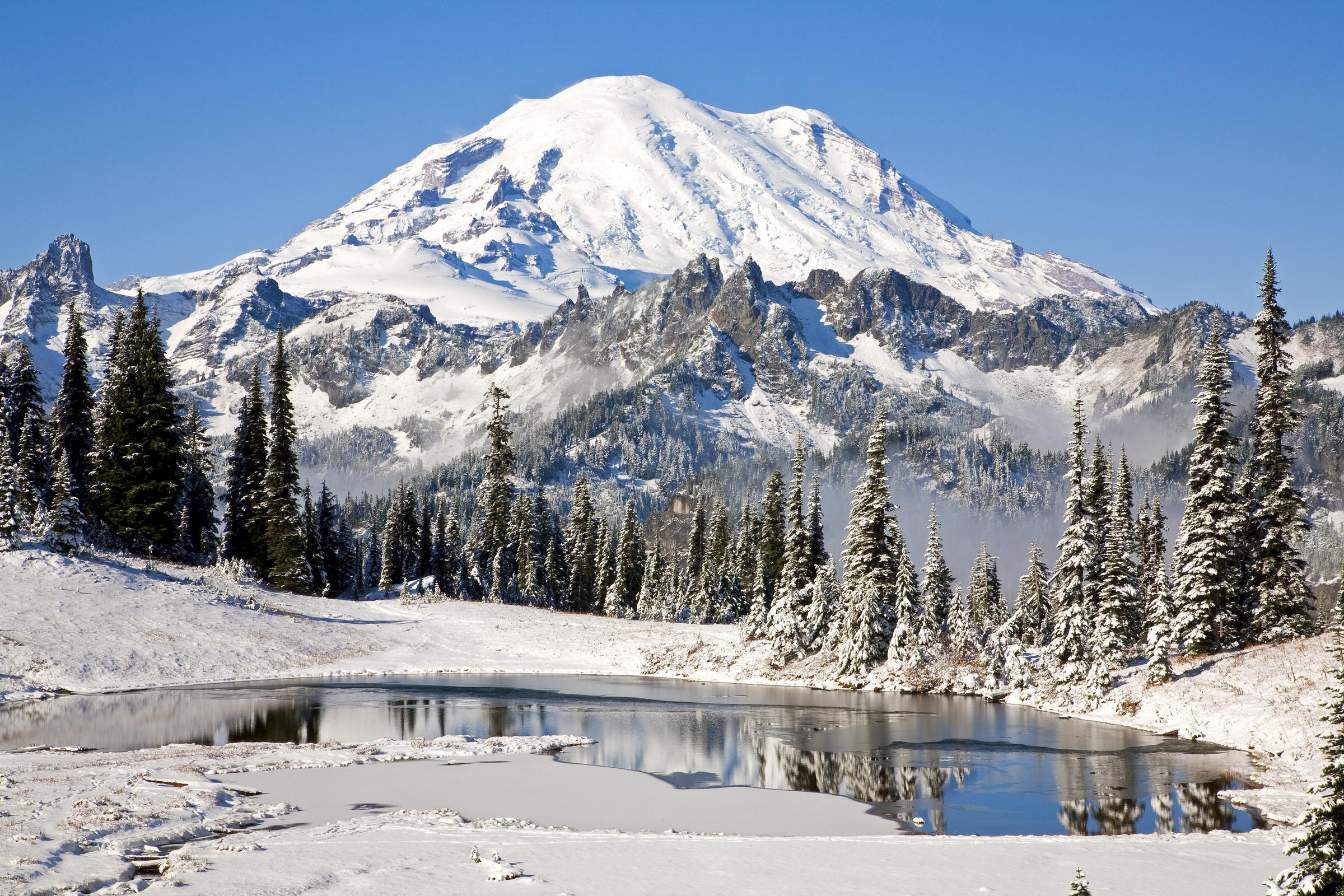
First Arctic Outbreak of the Season to Hit US on Thanksgiving – Details
This weather event, originating from Siberia, is expected to impact temperatures nationwide significantly.
The first Arctic outbreak of the season is set to sweep across the US during Thanksgiving, bringing freezing temperatures and potential snowfall.

A woman walks by the Washington statue in the Public Garden the morning after a massive winter storm in Boston, Massachusetts, on January 5, 2018 | Source: Getty Images
A blast of Arctic air from Siberia will mark the first major cold snap of the season starting this last week of November 2024. Weather Track US shared on X that forecasts show approaching Arctic air mass will cause temperatures to plummet as much as 25°F below seasonal averages in some areas.
Most of the continental US will see temperatures at least 10°F lower than usual, making for a chilly Thanksgiving holiday.
Regions near the Great Lakes and the Northeast should prepare for snow, while freezing temperatures are likely to reach southern areas, including the Gulf Coast and parts of the Southwest.
The National Weather Services confirmed these details, writing on X, “Dangerous wind chills across the Upper Midwest and heavy snows downwind of the Great Lakes will accompany this wintry blast.”
Arctic outbreaks can have widespread and severe consequences. These intense cold air masses may cause unprotected pipes to freeze and burst, leading to costly water damage. Shallow estuaries often experience large fish kills due to the sudden drop in temperatures.
Agriculture can suffer significant losses, particularly for citrus trees, tropical plants, and seasonal crops like strawberries.

Snow falls on corn plants at a field in Princeton, Illinois, on October 30, 2019 | Source: Getty Images
Additionally, the improper use of heating devices during these cold spells can lead to structural fires. Inadequate ventilation of fuel-based heaters also poses a serious risk of carbon monoxide poisoning.
Furthermore, the economic impact of Arctic outbreaks in areas like the Gulf Coast can rival that of a Category One hurricane, affecting infrastructure, livelihoods, and ecosystems.

Mount Rainier and Tipsoo Lake covered in snow in winter, Mount Rainier National Park in Washington, on June 13, 2019 | Source: Getty Images
Therefore, the National Weather Service Southern Region advised having multiple means of receiving weather alerts during the Arctic outbreak, which is expected to last through Monday, December 2, 2024.
They also suggested carrying a NOAA weather radio alongside Thanksgiving preparations to ensure everyone stays informed about potential
